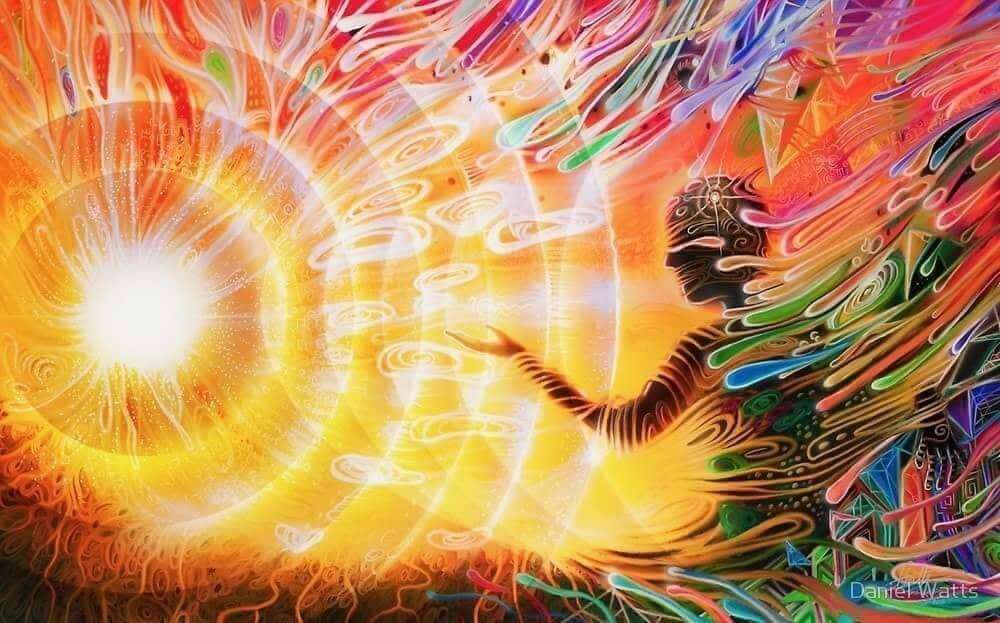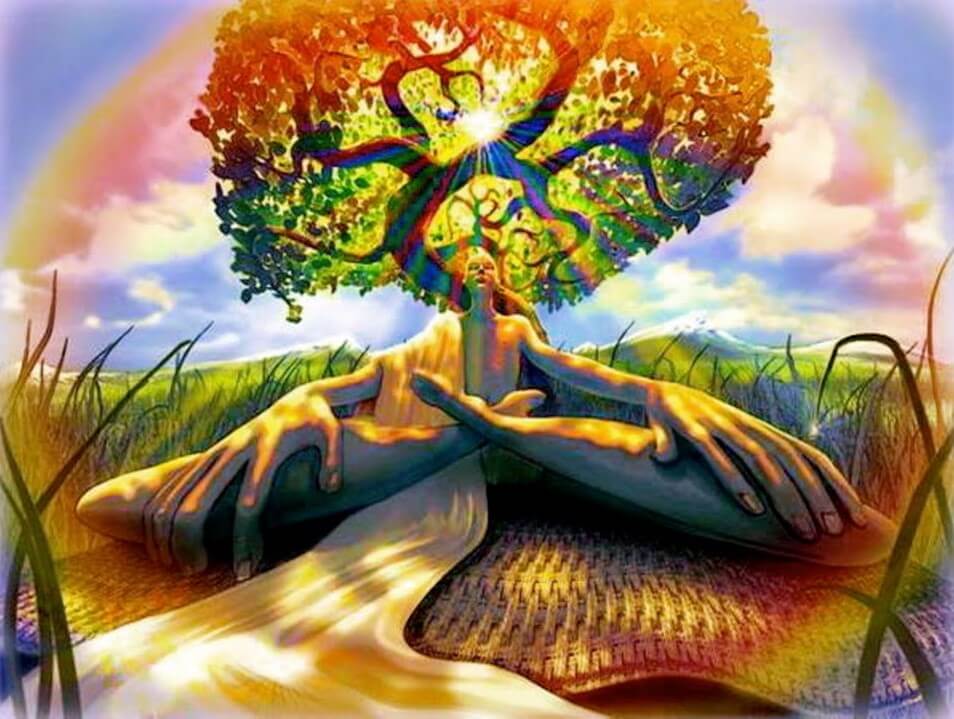“Don’t be satisfied with stories, how things have gone with others. Unfold your own myth.”
― Rumi, The Essential Rumi

“Our own self-realization is the greatest service we can render the world.”
– Ramana Maharshi
What does self-realization mean? Who is realizing what? Which self is being realized? What does the word ‘self’ actually signify? As with all philosophical, psychological, or spiritual concepts, our understanding of this term is relative to the level of our evolution. The word ‘self’ is another way to refer to our subjective existence. Here, the one who exists is not merely an object for another; he is a subject to himself. So, the word ‘self’, whilst used in various contexts, essentially refers to our sense of identity. Everything that exists has self; it is self that makes anything be what it is. However, to truly grasp who that self is, we need to be self-realized.
Life is a series of events or outcomes accompanied by its respective state of consciousness: each one of us in search of the TRUTH, in search of oneself, seeking the spiritual path, looking for Self-Realization, are urged by impellent occult causes.
We are all beautifully unique individuals, yet we all share a commonality in the sense that we live in our body and minds which are governed by our emotions and energy. As distinctive souls, we all operate at different levels which is why there are Four Margas, four paths of Yoga. It is these four paths which represent each aspect of our lives (body, mind, emotion, and energy) and it is through living that we will invoke at least one aspect, if not more on whatever path we choose to take in life.
(Jhana Marga)
The path of True knowledge also known as path of self-realization
When the practitioner learns to difference between the real and the unreal
(Karma Marga)
The path of selflessness and unattached action
Service without thought of reward
(Bhakti Marga)
The path of love, compassion, and unconditional devotion
Action with the thought that God or your higher self is acting through you
(Dhyana Raja Yoga Marga)
The path of self-control
The mind and its actions are brought under total control
At superficial level, all four paths seem to be different like different parts of the body of the same person, but when you probe deeper, you find that they are actually branches of one single path. The faith of the person gets changed, once a new knowledge is acquired as a result of action. No one can avoid action since action binds him to the world and it is a necessary obligation for the upkeep of the body. Every person has to work to survive in this world. The natural consequence of action is the acquisition of new knowledge for a person who pays attention. The natural consequence of a new knowledge is new thoughts and beliefs. Every action changes our understanding of the world and hence alters our faith, even though the change is so minute that it may not be known to us immediately. The change of faith is as slow as the changes in the body, which are so subtle that these cannot be noticed in a short time. Yet, no one can stop this change taking place even for a moment.
Thus, it is evident that all four paths of liberation are, in fact, not divergent but the same that constantly feed each other. Thus, the real path of liberation is not straight but in the form of a circle where one evolves gradually to the next orbit in the course of his life.
We all experience emotions of love, compassion and devotion at various points in our life’s journey. When done in the context of seeking the Devine, this is called Bhakti Yoga, the path of devotion.
In truth, no-one can escape this path, however, when it is practiced with open mindfulness it transcends to Karma Yoga, the path of physical action and selfless service.
Jnana Yoga is the path of knowledge, wisdom, introspection and contemplation. The revision of inward reflection, honest self-observation and learning naturally occurs within us all, it is how we grow and evolve.
Dhyana Raja Yoga deals with all aspects Yoga to unite and bring a balanced blissful harmony thus achieving Samadhi, Self-Realization. The path of meditation needs the realization of the inner self or soul. A person who is awakened and pays attention to his actions and its results, constantly learns new knowledge of the world as he is able to discover the hidden pattern between different outcomes. This knowledge is not acquired from the external world or from books but learnt by oneself. This is called self-realization. When a person cannot find solutions to problems from the worldly knowledge, he looks inside himself and finds that the source of all knowledge is within him. Dhyana Raja Yoga is a comprehensive method that emphasizes meditation or the physical asana practice.

In our Physical Asana Yoga practice, we sometimes find ourselves gravitating with more poised grace towards some asanas more than others. Thus, the same is true for the four paths of Yoga. They work well in harmony, yet are designed to complement alignments for individuals with unique predispositions. It is through distinguishing our unique qualities that we can amplify our Yoga path and unearth our purpose and discover self-realization.
The goal of self-realization is to rise above intellect to experience your true nature. We are who we are. We are precious and just fine by being our own self, as long as it is our true self. This engaging retreat program features, Dhyana Meditation, Pranayama, Yoga, an ancient Yogic breathing exercises, Yogic Rituals, discussions, and sharing. Everyone is welcome to join this retreat for the beginning of a new chapter in each of you, universal evolution and self-realization into the fathomless heart of God.
“The truth is one, paths are many.”
– Mahatma Gandhi

Our Ashram is inspired by the pilgrimage powers and is located in the Himalaya Mountains (Jia Village, District Palampur, Himachal Pradesh). We welcome you heartily!